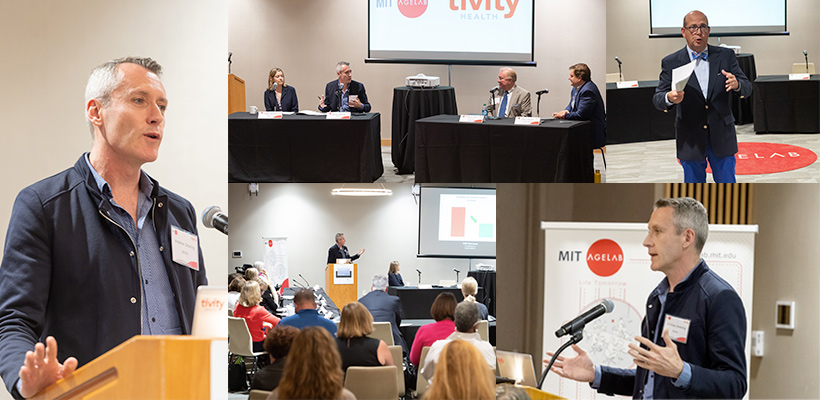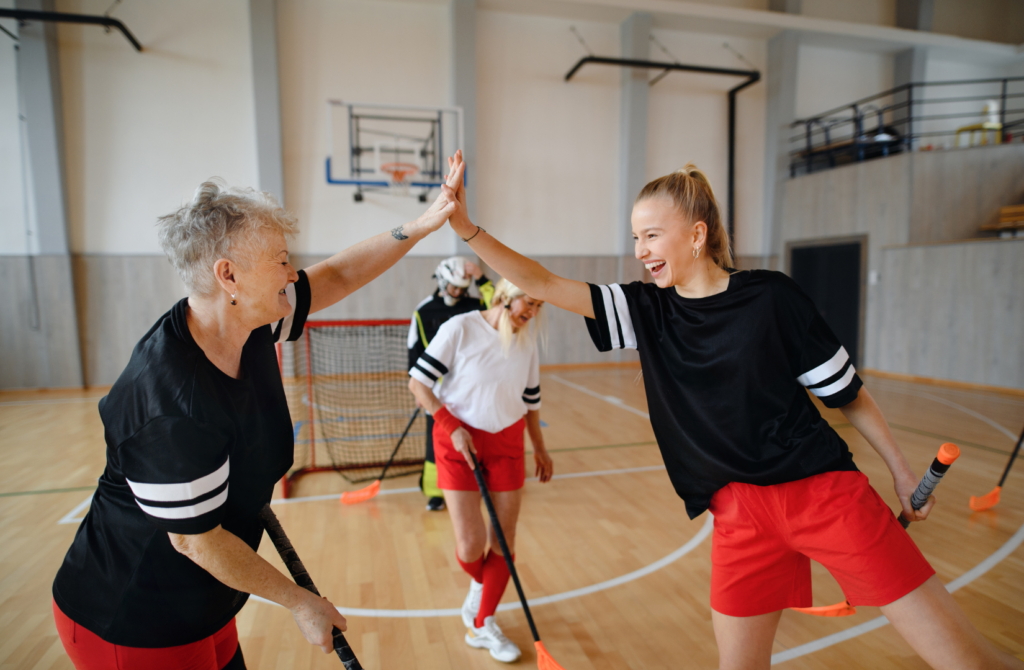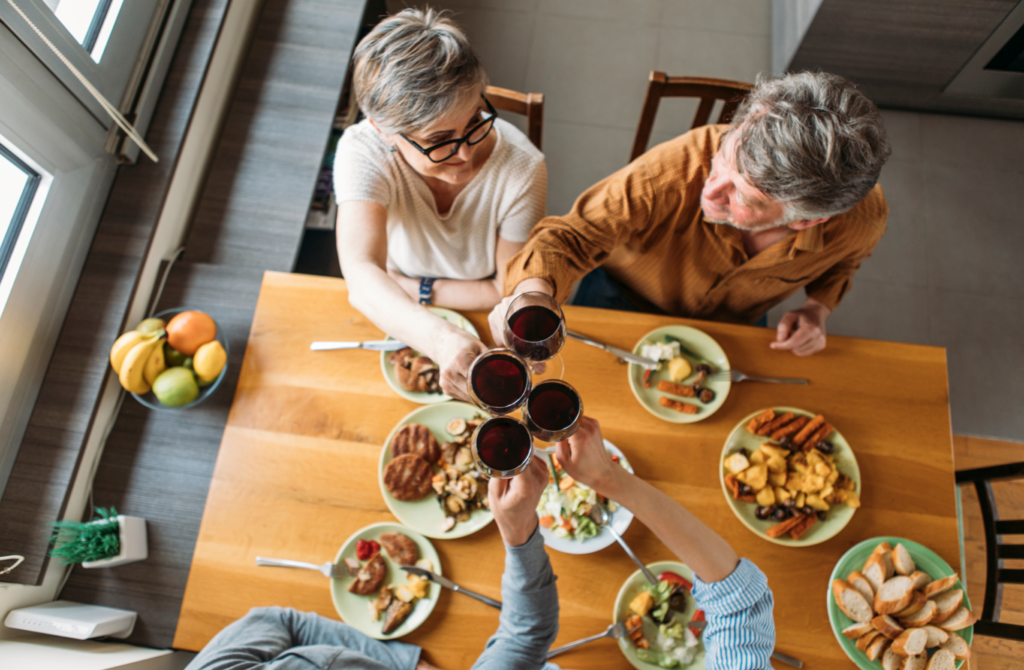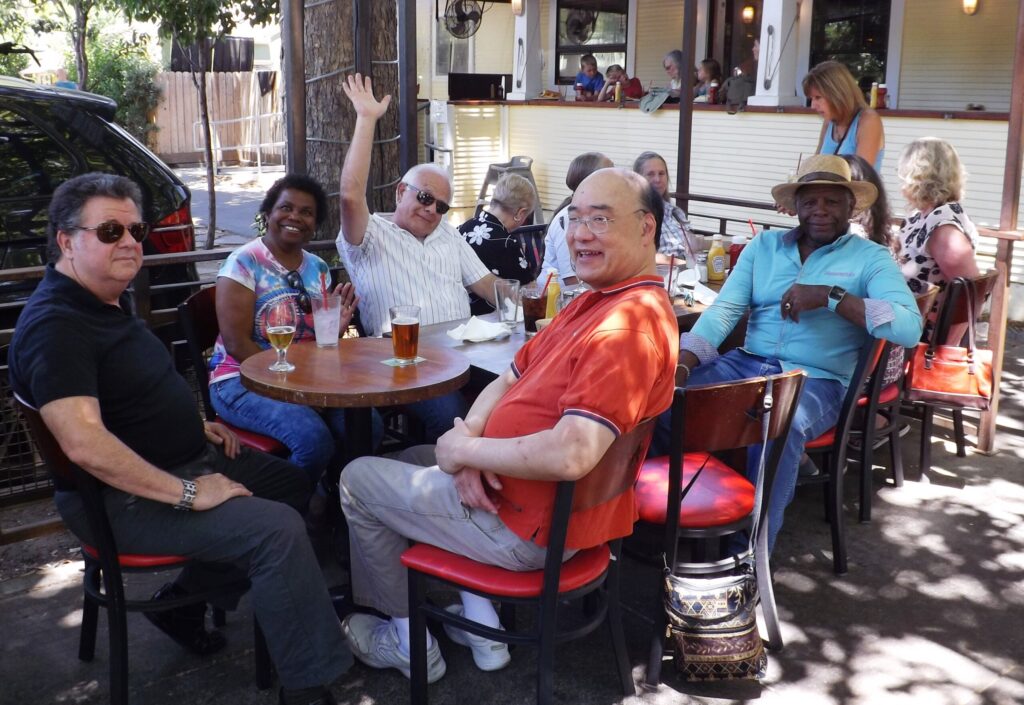I was recently given the honor of being invited to speak on a panel at the MIT AgeLab in Boston.
The theme of the symposium was “Fitness, Food, and Friends”, focusing on the three biggest factors influencing whether we enjoy happy, healthy, and fulfilled lives as we age, and the growing understanding we now have of how linked those three factors are.
The symposium brought together over 80 attendees at the MIT Sloan School of management, with representatives from government, health insurers, health practitioners, research, the media, and major enterprises like Walmart.
And, of course, Stitch.
The most inspiring speakers at the event, however, were a group of older adults whom the AgeLab calls “lifestyle leaders”: individuals in their 80s and 90s who are leading the way when it comes to changing how we think about age, and who contribute to research initiatives at AgeLab to help all of us understand how to age well.
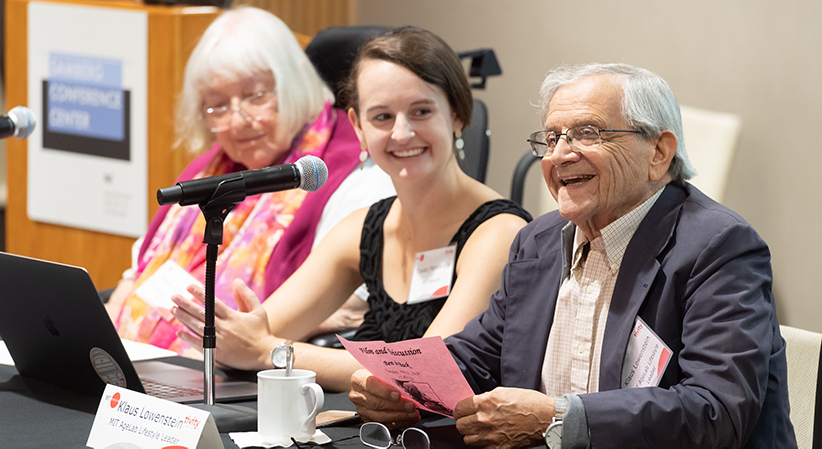
About AgeLab
If you’re not familiar with the AgeLab at MIT, it is something of a Mecca when it comes research into healthy ageing, and is at the forefront of promoting the idea that the final third of our lives can be something to look forward to, provided we approach ageing the right way.
AgeLab’s founder, Joe Coughlin, has spent over two decades busting myths about older consumers with groundbreaking multidisciplinary research into what older people actually want, rather than what conventional wisdom suggests they need.
Fitness, Food, and Friends
The title of the symposium gives you a fair idea of what the research is now telling us about how to live long, enriched, and active lives as we age.
We need to stay physically active.
We need to eat well.
And we need regular social activity.
It is absolutely thrilling to see that this last point is finally starting to get the attention it deserves. If you’ve been following Stitch for any length of time, or read our articles about the health impact of loneliness and isolation, then you’ll know that I’ve been harping on this issue for the better part of a decade.
When we first began talking about why it’s so important for all of us to maintain rich social connections, no matter how old we are, it often felt I was the only person in the room. When we launched Stitch, people often looked at us strangely, openly questioning whether the social lives of older adults was anything worth caring about.
It’s amazing how far we have come. Now, the US Surgeon General declares that loneliness is as bad for your health as smoking 15 cigarettes a day.
At the AgeLab symposium it was exhilarating to see the importance of social connections not just being acknowledged, but understood. It was clear that everyone in the room knew how important it was, and wanted to learn what to do about it.
Everything is connected
Things got even more exciting as the symposium proceeded, as it became clear that there is a growing consensus that not only are all three dimensions are strongly connected, but that social connections play a role in tying everything together.
When people have lots of positive social connections, they are more likely to be physically active, more likely to eat well, and more likely to stay healthy.
In contrast, when people are lonely or isolated, it impacts the choices they make in other parts of their lives, leading them to be less physically active, have poorer diets, and lead generally less healthy lives all around.
The importance of social connections, and what we are doing at Stitch, has never been more clear.
A fundamental human right
More than being just a health issue, however, the whole question of social connections as we age was brought into stark focus by Donato Tramuto, CEO of Tivity, in his keynote address in the morning.
Donato took a position on social connections that I hadn’t heard before, and which really stuck with me.
Donato’s message was simple. “This is fundamentally a human rights issue. Access to adequate health care is a basic human right. And the importance of social connections in providing good health outcomes means we need to think of the need for social connections as a human right.”
I had never thought of Stitch as a human rights company, but I guess I have to now.
It just makes the Stitch community, and all the amazing members who contribute to it, seem even more important than ever.
